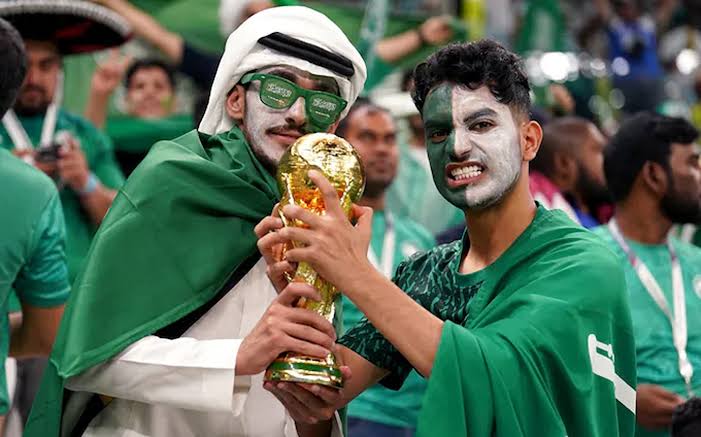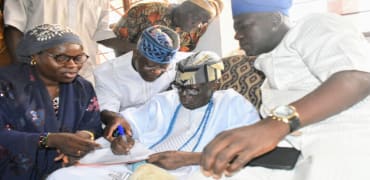Safe and Welcome: Saudi Arabia’s Assurances to LGBTQ Fans for 2034 World Cup Spark Debate
Safe and Welcome: Saudi Arabia’s Assurances to LGBTQ Fans for 2034 World Cup Spark Debate
By Achimi muktar
In a bold and controversial move, Saudi Arabia has secured hosting rights for the 2034 FIFA World Cup, promising LGBTQ fans a "safe and welcome" experience despite its conservative laws and contentious human rights record. The English Football Association (FA) announced its support for the Gulf nation’s bid, citing assurances it received regarding the safety and inclusivity of all fans attending the tournament.
The announcement follows FIFA's confirmation of Saudi Arabia’s successful bid, solidifying the kingdom’s rising influence in global sports. This decision comes hot on the heels of another landmark announcement: the 2030 World Cup will be hosted jointly by Morocco, Spain, and Portugal, with three matches also staged in South America.
A Familiar Human Rights Spotlight
Saudi Arabia’s selection reignites the heated debate around human rights in Middle Eastern nations hosting global events, an issue prominently raised during Qatar’s hosting of the 2022 World Cup. FIFA President Gianni Infantino addressed the concerns head-on during Wednesday’s congress, emphasizing the organization’s commitment to inclusivity and non-discrimination.
"We are aware of critics and fears, and I fully trust our hosts to address all open points and deliver a FIFA World Cup that meets expectations," Infantino stated.
England’s Seal of Approval
The English FA played a pivotal role in endorsing Saudi Arabia’s bid, revealing details of discussions with Saudi football officials. According to an FA statement, the governing body sought explicit guarantees on safety and inclusion for LGBTQ fans—a group that faces significant legal and cultural challenges in the kingdom.
"They assured us that they are fully committed to providing a safe and welcoming environment for all fans," the FA emphasized. "Football is a global game and is for everyone."
The FA underscored its belief in the power of hosting World Cups as a catalyst for social change, vowing to collaborate with FIFA and UEFA to ensure that human rights commitments are honored.
Critics and Optimists Collide
Despite these assurances, skeptics question how Saudi Arabia will reconcile its strict societal norms with the demands of hosting a truly inclusive World Cup. Advocates for LGBTQ rights argue that verbal commitments may not translate into concrete action, pointing to the country's track record on issues of gender equality, freedom of speech, and LGBTQ rights.
Supporters of the bid, however, argue that the international spotlight and increased engagement with the global community could pave the way for incremental reforms.
What Lies Ahead
As Saudi Arabia prepares to host one of the most-watched sporting events on the planet, the world will be watching closely to see if the kingdom can deliver on its promises. Will the 2034 World Cup be a triumph of inclusivity, or will it deepen the divide between progress and tradition?
One thing is certain: the assurances given to the English FA have set high expectations, and the stakes have never been higher for Saudi Arabia's global image.


















